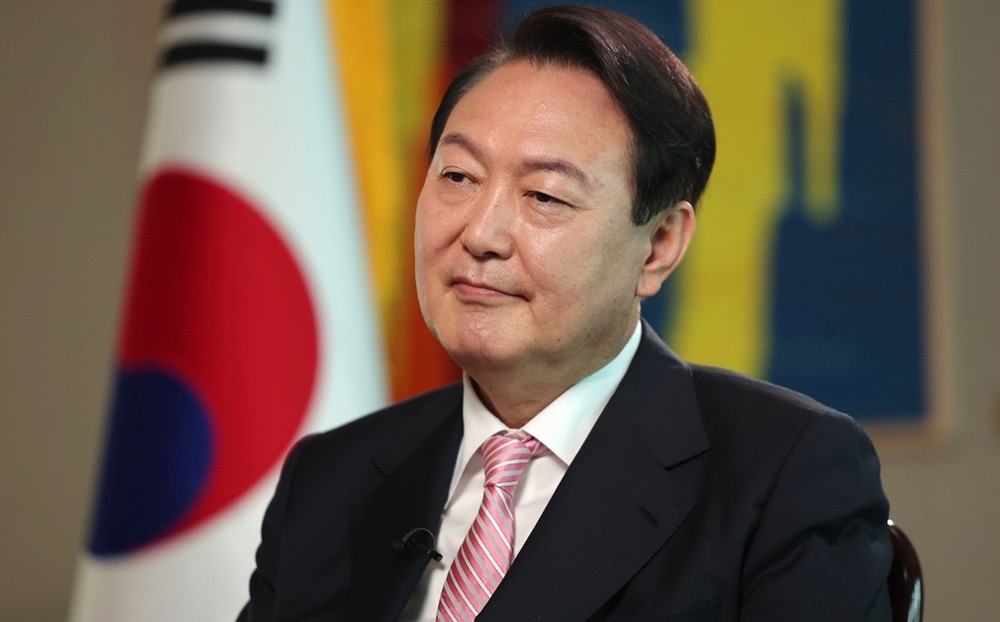In an unprecedented development, a Seoul court has issued an arrest warrant against South Korea’s impeached President Yoon Suk Yeol, marking the first time a sitting South Korean president faces the possibility of arrest. According to domestic media reports, the warrant was approved by the Seoul Western District Court on December 30, allowing authorities to detain Yoon for questioning within 48 hours.
This move deepens an already volatile political crisis in South Korea, sparking debates over constitutional authority, political accountability, and the limits of presidential power.
Key Events Leading to the Arrest Warrant
The arrest warrant follows a series of legal and political controversies surrounding President Yoon. On December 3, Yoon declared emergency martial law, citing the need to “protect the constitution.” However, the country’s National Assembly overturned the declaration within six hours, triggering accusations of overreach.
Yoon’s impeachment was finalized on December 14 when lawmakers, including members of his own conservative People Power Party, voted in favor of removing him from office. This came after an earlier impeachment attempt failed to reach the two-thirds majority required.
Despite his impeachment, Yoon remains president while the Constitutional Court deliberates on his case. Under South Korean law, impeachment suspends presidential powers and duties, which are currently being fulfilled by Deputy Prime Minister Chio Sang-mok after the impeachment of Prime Minister Han Duck-soo last week.
Legal and Security Challenges
The arrest warrant against Yoon comes after he repeatedly failed to comply with summons from a joint investigation unit comprising South Korea’s police and the Corruption Investigation Office for High-ranking Officials (CIO). The investigation centers on charges of insurrection tied to his martial law declaration.
Yoon’s legal team has decried the warrant as “illegal and invalid,” arguing that the CIO lacks jurisdiction to investigate insurrection charges. They plan to file an injunction with the Constitutional Court to suspend the warrant’s execution.
Adding to the tension, the Presidential Security Service has restricted access to Yoon’s official residence and the presidential office compound, citing security concerns. A separate search warrant has also been issued for Yoon’s residence.
Constitutional Implications
South Korea’s constitution does not grant immunity to sitting presidents facing charges of insurrection or treason. CIO Chief Oh Dong-woon emphasized that the law prohibits presidents from obstructing a court-issued warrant, leaving Yoon with few options to avoid detention.
The Constitutional Court is currently tasked with determining whether Yoon will be permanently removed from office or reinstated. The court has a 180-day timeline to deliver its ruling, which began on December 14.
Leadership in Limbo
The political turmoil has left South Korea in a precarious leadership situation. After Yoon’s impeachment, Prime Minister Han Duck-soo briefly assumed presidential responsibilities but was himself impeached last week. Han faced criticism from the opposition Democratic Party for delaying the appointment of three justices to the Constitutional Court.
Deputy Prime Minister and Finance Minister Chio Sang-mok stepped in as acting president on December 27, adding to the country’s political uncertainty.
A Historic Moment for South Korea
The ongoing crisis highlights the fragility of South Korea’s political system and the challenges of balancing executive power with accountability. Yoon’s arrest, if carried out, would set a historic precedent and could have far-reaching implications for the country’s governance and its global reputation.
As the Constitutional Court deliberates Yoon’s fate, South Korea remains on edge, grappling with questions about the rule of law, democracy, and political stability.











